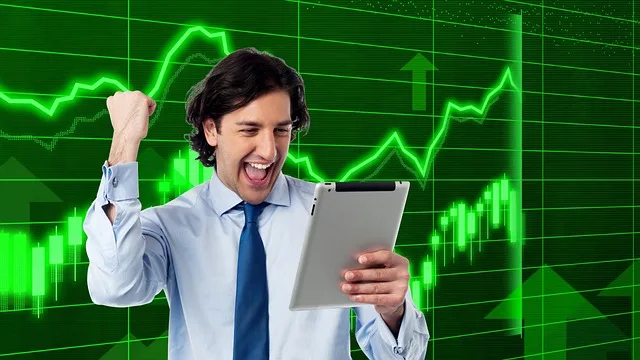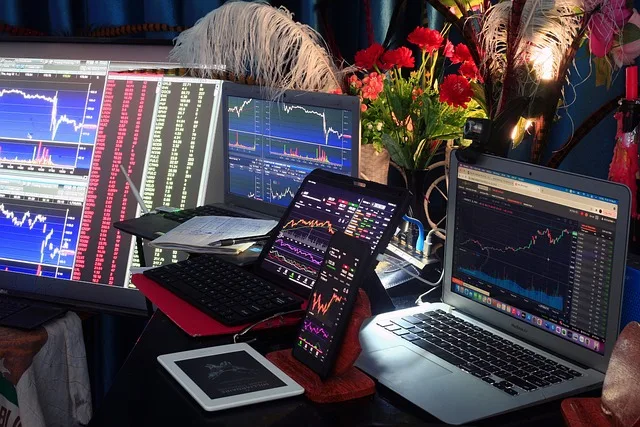How Do Professional Traders Grow Their Fortune

You’ve probably wondered how professional traders manage to grow their wealth consistently. They might even seem like magicians with secret tricks up their sleeve. In reality, their success lies in their strategies, discipline, and an in-depth understanding of the market. Let’s delve into what they do differently to increase their fortune.
Education and Continuous Learning
Education and continuous learning are the cornerstones of success for professional traders. This occupation involves understanding complex financial instruments and market dynamics, which require a solid foundation of financial education. Lots of people get started with Axi programs to learn all the basics as well as the necessary skills to thrive in this world. Traders need to grasp economic theories, market indicators, and financial modeling to make informed decisions.
However, markets are ever-changing beasts and what worked yesterday may not work tomorrow. That’s where continuous learning comes into play. It allows traders to stay abreast with emerging trends, new financial products, and changing market conditions. Moreover, learning from past trades, both successful and unsuccessful, is a form of education that helps refine strategies and avoid repeating mistakes. So, it’s no magic trick. It’s the unending pursuit of knowledge that empowers traders to grow their fortune.
Risk Management
Risk management is the unseen hero in a trader’s journey to success. It’s a strategic approach to minimize losses and optimize profits. Traders use risk management to define the amount of risk they are willing to take per trade, setting stop-loss and take-profit levels accordingly. This method allows traders to maintain control, even when the market behaves unpredictably.
Additionally, managing risk involves diversifying portfolios to spread and mitigate potential losses. Traders may invest in various financial instruments from different sectors or even different countries. It’s all about not putting all the eggs in one basket. By managing risk effectively, traders can ensure that even when some trades go south, they won’t wipe out their entire trading account, allowing them to stay in the game and grow their fortune over time.
Technical and Fundamental Analysis
When it comes to trading, there are a lot of different things that need to be assessed before making a decision. Here are some skills that help make that happen:
- Chart reading
- Identifying trends
- Support and resistance levels
- Indicators and oscillators
- Chart patterns
- Volume analysis
- Fibonacci retracements and extensions
- Risk management using technical analysis
- Time frame selection
- Backtesting and strategy development
- Psychological considerations
Technical analysis, through chart patterns and indicators, helps to predict price trends, enabling traders to make informed decisions based on market trends. On the other hand, fundamental analysis evaluates the intrinsic value of an asset using economic and financial factors. By understanding the underlying health and performance of an asset, traders can anticipate potential price movements and make strategic investment decisions, contributing to their overall wealth growth.
Discipline and Patience
Discipline ensures that traders stick to their trading plan, avoid emotional trading, and maintain consistency in approach – even when the market seems unfavorable. On the other hand, patience is crucial for waiting for the perfect trading opportunity and allowing trades to reach their full potential. It prevents hasty decisions, like selling too soon or entering the market prematurely.
Both these traits combined foster a long-term trading perspective, reducing the urge for quick, potentially risky gains. Thus, traders with discipline and patience can navigate market volatility, make informed decisions, and systematically grow their fortune.
Adaptability
The financial markets are fluid and influenced by a myriad of factors, from macroeconomic indicators to geopolitical events. Therefore, traders must be adaptable, and ready to modify their strategies to align with the evolving market conditions. This flexibility enables them to capitalize on new opportunities and minimize losses during unexpected market shifts.
Moreover, adaptability isn’t just about strategies; it extends to embracing new technologies, trading tools, and financial products. This openness to learning and adapting is what keeps traders on top of their game, enhancing their ability to make profitable decisions and consequently, grow their fortune.
Emotional Control
Emotional control allows traders to remain objective and make clear-headed decisions, rather than reacting impetuously to market fluctuations. It involves managing fear and greed, two emotions that often lead to disastrous trading decisions. For instance, fear can cause traders to sell off assets prematurely during a downturn, while greed can make them over-invest or hold onto assets for too long in a bullish market.
By mastering emotional control, traders can stick to their trading plan and risk management strategies, avoiding knee-jerk decisions that could jeopardize their fortune. This emotional stability amid the market’s roller-coaster ride is a vital ingredient in the recipe for consistent wealth growth in trading.
As you embark on your trading journey, remember that there’s no magic trick to success. It takes discipline, continuous learning, risk management, comprehensive analysis, adaptability, and emotional control. Embrace these principles, and you’ll be well on your way to growing your fortune, just like professional traders. Keep learning, keep trading, and most importantly, keep growing.



